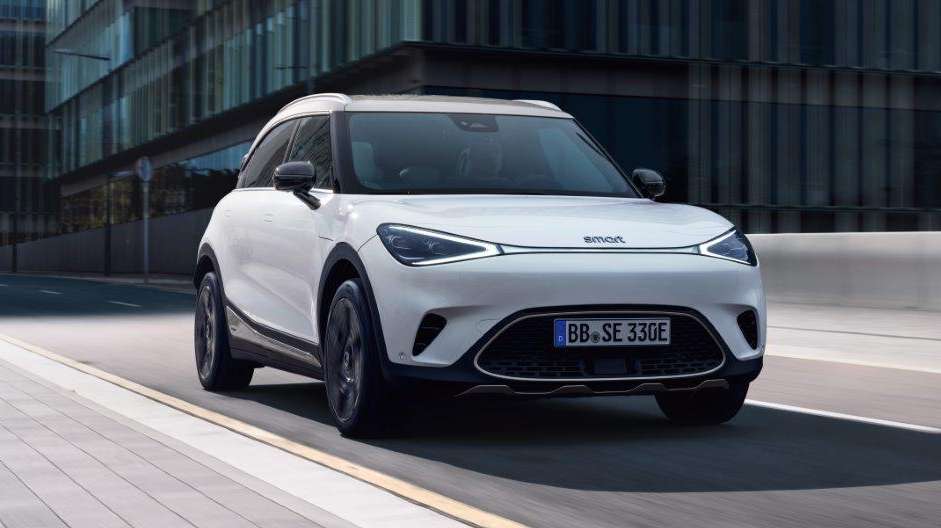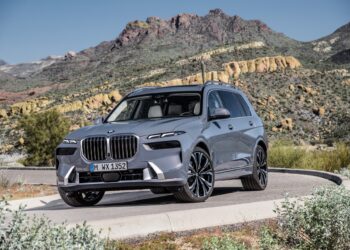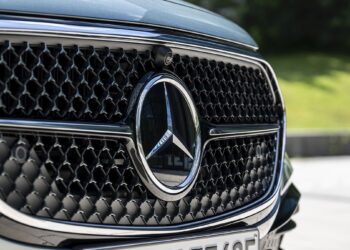In a bold revelation, Smart’s CEO Dirk Adelmann has hinted that the next generation of the iconic Smart ForTwo could make a triumphant return to European soil. This potential shift is a response to the European Union’s newly imposed tariffs on Chinese-imported electric vehicles, a move that has sent shockwaves through the industry and forced automakers to reconsider their production strategies. For Smart, which currently produces its EV models in China, manufacturing in Europe could not only help circumvent rising import costs but also cater to a rapidly growing demand for locally-built, sustainable vehicles.
Adelmann underscored that while no final decision has been made, the company is actively exploring its options to keep the ForTwo’s pricing accessible for European consumers. “European production could give us a unique edge in a competitive EV market,” Adelmann shared, highlighting how local production could strengthen Smart’s brand appeal and align with consumer preferences for home-grown manufacturing.
A Strategic Shift: Bringing Production Closer to Home
Relocating ForTwo production to Europe would represent a significant pivot for Smart, which, since its joint venture with Chinese giant Geely, has increasingly focused on Asian manufacturing. However, the company sees the move as an opportunity to leverage Europe’s advanced manufacturing capabilities, extensive supply chain networks, and commitment to sustainable production practices. By producing the ForTwo in Europe, Smart could align itself more closely with European values of sustainability and reduce the environmental impact associated with overseas transportation.
Industry experts are already weighing in on the potential benefits of a European production hub. This strategic shift could reduce supply chain vulnerabilities, ensure faster delivery times, and offer greater flexibility to adapt production in response to local market trends. The result could be a more agile Smart, ready to respond swiftly to the evolving EV market.
Reimagining the ForTwo: A New Era for the Beloved City Car?
The ForTwo has long held a special place in Europe’s urban landscape, beloved for its compact design and suitability for city driving. Should production move to Europe, the ForTwo’s successor could arrive with updates specifically tailored to European tastes, tapping into the nostalgia of longtime fans while attracting a new generation of eco-conscious urban drivers. A European-made ForTwo could also benefit from localized innovation, with potential enhancements in battery technology, charging efficiency, and integration with European smart-city infrastructure.
For the brand, the European market presents a golden opportunity to differentiate itself further from competitors. With urban mobility and compact EVs on the rise, Smart is uniquely positioned to capitalize on the demand for efficient, environmentally-friendly vehicles designed for city living. Adelmann hinted that a Europe-made ForTwo could incorporate some “unique and region-specific” design and tech features, offering a model distinctly attuned to European urban environments.
A Ripple Effect Across the EV Industry?
If Smart follows through with its European manufacturing plans, it could set off a chain reaction across the EV industry. As the EU’s tariffs on Chinese EV imports prompt a reevaluation of production locations, other automakers may be inspired to bring their operations closer to European markets. This shift could foster a revitalized manufacturing sector in Europe, driving innovation, job growth, and sustainable practices within the continent.
The move could also intensify competition within the European EV market, as automakers race to establish localized production hubs to gain an edge. For consumers, this could mean greater variety, improved quality, and potentially lower prices, as European-made EVs benefit from tariff-free access to the market.
What’s Next for Smart? Eyes on the Horizon
With the potential return of ForTwo production to Europe, Smart is signaling a willingness to evolve and adapt in the face of industry changes. As Adelmann and his team weigh their options, the world is watching, eagerly anticipating the next chapter for this iconic brand. If Smart moves forward with European production, it could mark a turning point, not only for the company but for the entire European EV market, which is increasingly defined by innovation, sustainability, and local pride.
For now, the future of the Smart ForTwo is packed with promise, as the brand takes bold steps to solidify its place in Europe’s rapidly evolving automotive landscape. A European-built ForTwo would be more than just a car – it would be a statement, blending Smart’s legacy of compact urban mobility with the future of sustainable, locally-produced transportation.










